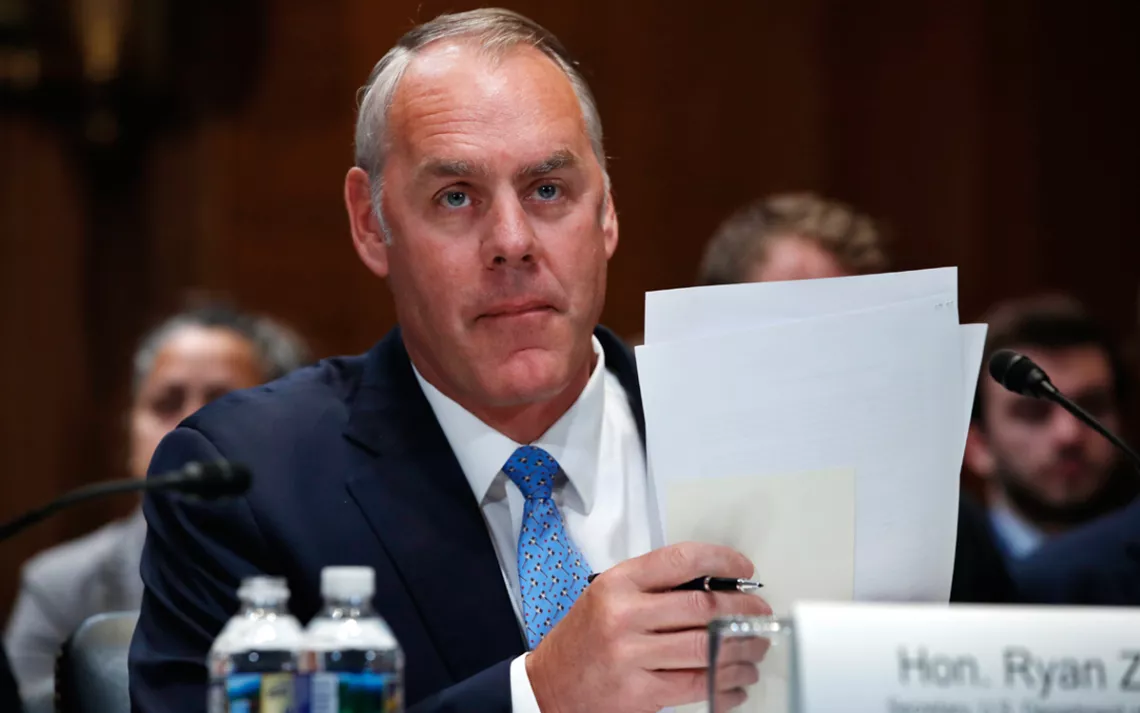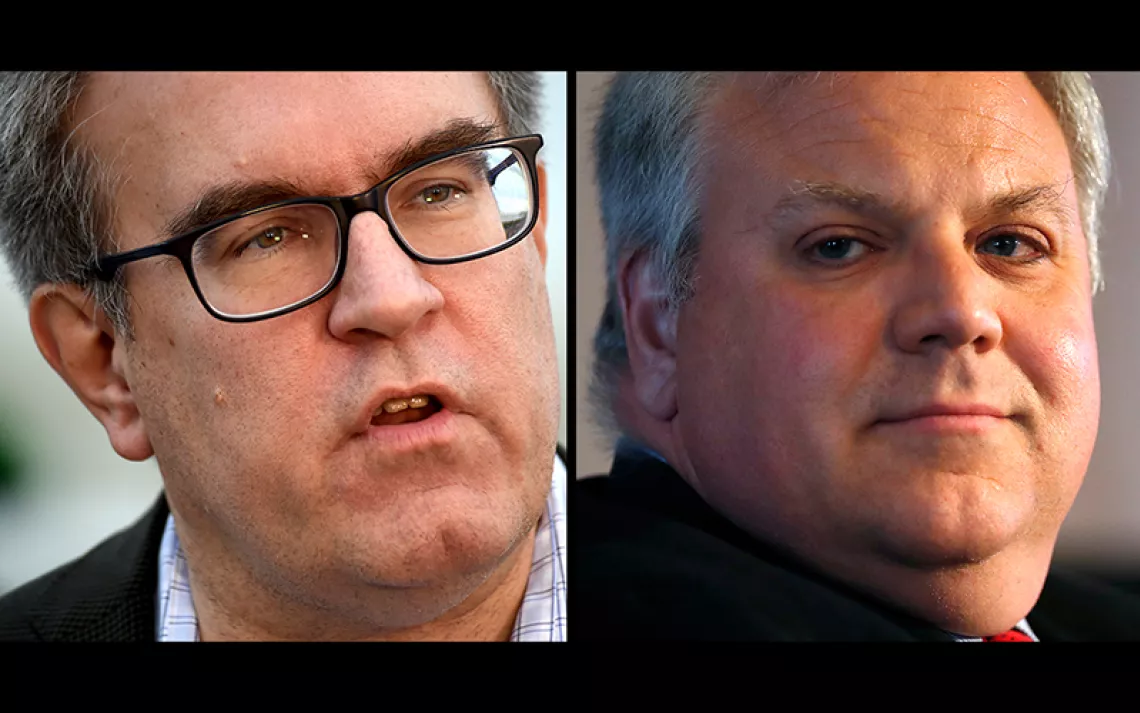Where’s the Money, Secretary Zinke?
Reduced budgets, favoritism raise concerns on Capitol Hill

Interior Secretary Ryan Zinke arrives for a Senate Appropriations subcommittee hearing on the FY19 budget on May 10, 2018, in D.C. | Photo by Jacquelyn Martin/AP
The Trump administration is well-stocked with grifters, but Interior Secretary Ryan Zinke still often manages to stand out from the pack. Between burning tens of thousands of dollars on expensive helicopter flights, insisting on a security detail while on a European vacation, and possibly violating the Hatch Act (which prohibits federal employees from engaging in political activities), the “Teddy Roosevelt Republican” has become known for profligate spending. But when it comes to his department’s spending, Zinke is a little more stingy—and his penny-pinching has drawn bipartisan concern.
On Thursday morning, Senate appropriators grilled Zinke on his $11.7 billion budget request for fiscal year 2019, which is about $2 billion less than the enacted budget for 2018. Republicans and Democrats alike were concerned about the skinny budget, which allots $18 million to jump-start the largest reorganization of the Interior Department in history while slashing funding mechanisms like the Land and Water Conservation Fund. “Frankly, Mr. Secretary, your goals do not match your budget request,” said New Mexico senator Tom Udall, a Democrat who serves as ranking member of the Interior, Environment, and Related Agencies subcommittee.
Like last year’s budget, Zinke’s proposed budget shifts resources away from new land acquisitions to developing and rebuilding infrastructure for existing lands, including the nearly $12 billion maintenance backlog at the national parks. But the committee was skeptical of Zinke’s ability to put the winnowed funds into action, especially considering how slow he has been to spend last year’s funds. “These are big expenses,” said Tennessee senator Lamar Alexander, a Republican, regarding repairs for his state’s Great Smoky Mountains National Park, “and if we don’t do something extraordinary, it will never get done.” Republican senator Marco Rubio of Florida was concerned that the budget reflected a lack of commitment to Everglades restoration. “Every year we go off schedule, the price tag goes up,” Rubio said.
Tribal programs are also decimated by the budget, Senator Udall complained. The proposed budget cuts the Bureau of Indian Affairs funding by nearly 21 percent—especially insulting given that many Native American nations have been opposed to public lands management in their traditional lands. Udall pointed to the fact that the Interior Department has opened up oil and gas leasing around Chaco Canyon and slashed national monuments like Bears Ears. “I’m not going to include the tribes unless they want to,” Zinke said with a taunting smile. And, he continued to insist that adjusting the boundaries of Bears Ears had nothing to do with oil and gas development, despite internal emails uncovered by the New York Times that suggest otherwise.
Senators from coastal states also sharply questioned Zinke’s plan to dramatically increase offshore oil drilling. Maryland senator Chris Van Hollen, a Democrat, demanded that Zinke give Maryland the same exemption from offshore drilling that Zinke had promised Florida. Van Hollen described that decision—which was delivered via tweet—as arbitrary, capricious, and clearly political, and also noted that Zinke’s rationale that Florida had an existing moratorium on offshore drilling only applied to the Gulf Coast, not the Atlantic. Oregon senator Jeff Merkley, a Democrat, brought up offshore oil drilling as well, pointing out that Oregon’s exceptional coast is important to its tourism and fishing economies. Zinke claimed that neither state had anything to worry about because there were no significant resources off either coasts, but would not commit to a moratorium, instead stating vaguely that “local and state voices would be heard.” Senator Rubio, who apparently has trouble reading a room, joked that Merkley was wrong: Florida, not Oregon, has the most beautiful coastline.
Zinke’s favoritism toward energy developers goes beyond leasing and development. Senator Van Hollen noted that changes in the Interior’s interpretation of the Migratory Bird Treaty Act that reduce penalties for “incidental take” will cut fossil fuel developers a break at the expense of wildlife. Zinke explained that the new interpretation protects people from being fined for accidents like hitting a bird with their car. Van Hollen pointed out that no case in the United States has ever been brought for that kind of situation. When further pressed about the ramifications of catastrophes like the Deepwater Horizon oil spill, Zinke insisted that there were multiple regulations in place to keep companies liable for bird deaths. But he couldn’t seem to keep straight the difference between “accidental” and “criminal.”
 The Magazine of The Sierra Club
The Magazine of The Sierra Club



